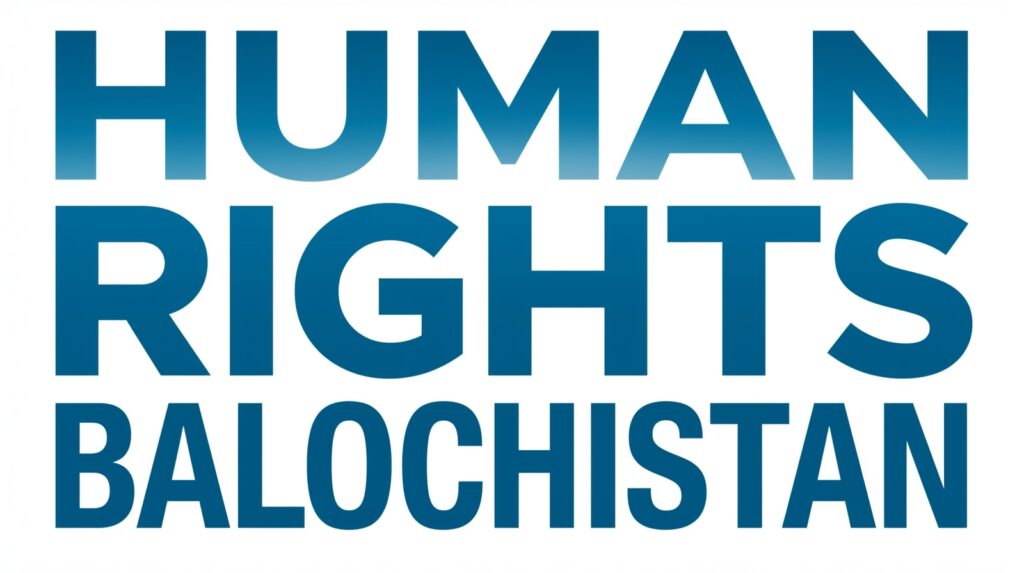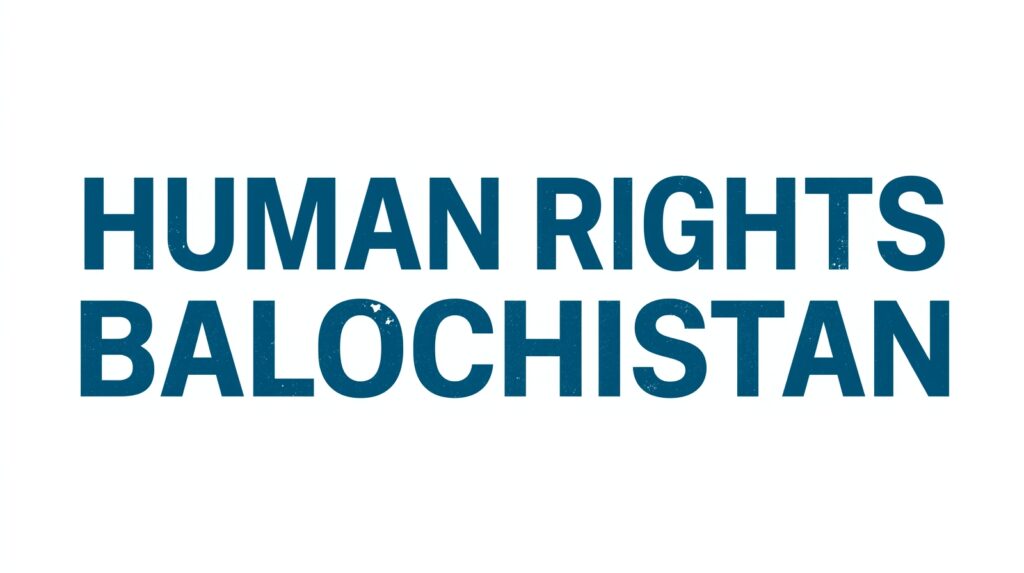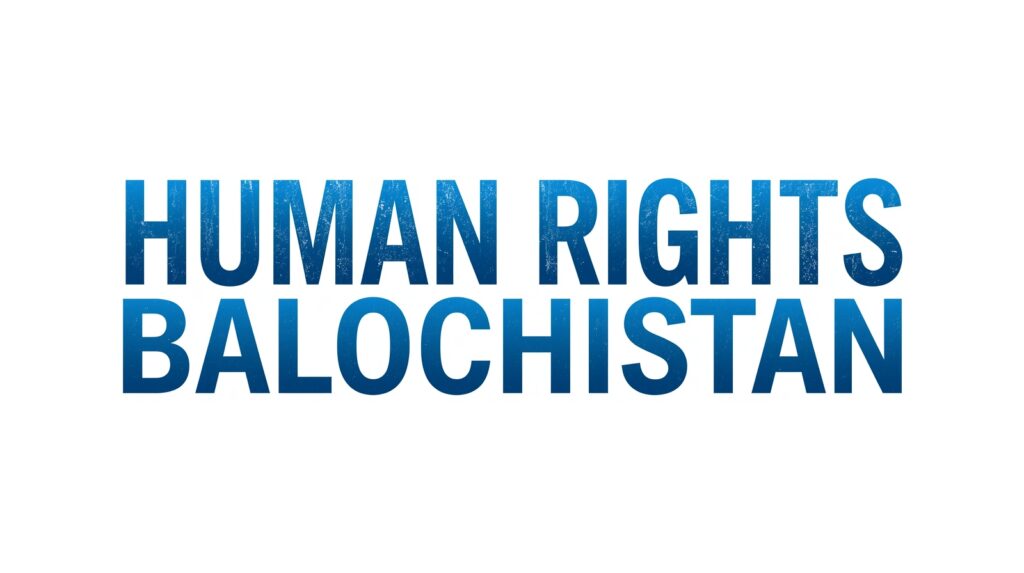Balochistan – Pakistan’s largest yet most undeveloped province — stands at the core of a long and brutal struggle for human rights. With its abundant natural resources and strategic position, Balochistan should have been a powerhouse of prosperity and advancement. Instead, it has become a zone notorious with impoverishment, enforced disappearances, and socio-political estrangement.
As of 2025, human rights in Balochistan remain one of the most contested and serious problems in Pakistan. From missing persons to freedom of speech limitations and economic marginalization, the province’s people continue to confront systematic neglect that deserves national and global attention.

Historical Context: A Province in Perpetual Struggle
Since Pakistan’s independence, Balochistan has undergone repeated uprisings, insurgencies, and security operations. Each cycle has exacerbated mistrust between the Baloch people and the state.
In the 1970s, the province underwent an armed insurrection demanding political autonomy and control of resources. Later, the 2000s saw fresh strife as nationalist movements sought greater rights, while the state emphasized security and national unity. This decades-long tension has formed today’s human rights issue – where ordinary citizens often become collateral in a complex war between insurgents and the state.
Major Human Rights Issues in Balochistan
1. Enforced Disappearances
Perhaps the most terrible and publicly reported issue in Balochistan is enforced disappearances. Thousands of families have reported missing sons, brothers, and dads purportedly abducted by security agents or unidentified armed individuals.
Women-led protests, such as those organized by the Baloch Yakjehti Committee (BYC), have become a symbol of resilience and sorrow. Mothers and sisters bearing images of their missing loved ones have marched from Turbat to Islamabad, demanding answers.
Despite repeated assurances, the Commission of Inquiry on Enforced Disappearances has made little progress. Human rights organizations such as Amnesty International and Human Rights Watch have frequently urged for independent inquiries, yet accountability remains elusive.
2. Extrajudicial Killings and Security Operations
Security operations, typically justified under anti-terrorism efforts, have led to numerous charges of extrajudicial killings. Activists report that those jailed without trial are sometimes found dead in distant regions – a horrific trend known locally as “kill and dump.”
While officials maintain that these operations target insurgents, local communities accuse them of targeting civilians. The lack of openness, absence of judicial monitoring, and limited access to impacted districts make independent verification difficult – nevertheless dread and quiet dominate daily life for many Baloch families.
3. Suppression of Freedom of Speech and Media
Balochistan is one of the most challenging locations in Pakistan for journalists to operate. Local reporters endure intimidation, threats, and even enforced disappearance for covering sensitive themes such as human rights abuses or resource exploitation.
International journalists are rarely permitted unrestricted access. The digital censorship and internet shutdowns during protests further restrict freedom of expression, cutting off citizens from the rest of the country and silencing their voices online.
Social media activists who publicize missing persons’ situations often risk online abuse, surveillance, or legal threats under Pakistan’s cybercrime laws.
4. Socio-Economic Discrimination
Balochistan’s human rights dilemma is not limited to political repression – it’s also about economic injustice. Despite producing most of Pakistan’s natural gas, the province is bereft of basic essentials. Many villages still lack electricity, decent water, and basic education.
Unemployment rates are frighteningly high, and infrastructure projects like CPEC (China-Pakistan Economic Corridor) have fostered hostility. Locals claim that they are excluded from decision-making and job possibilities while others reap the benefits of Balochistan’s wealth.
Economic neglect promotes the impression of second-class citizenship, making the fight for human rights inseparable from the fight for socio-economic equality.
5. Women and Human Rights
Baloch women, previously constrained to rigid societal norms, have emerged as prominent voices in the human rights battle. They have led extended marches, sit-ins, and protests demanding justice for missing family members.
However, women in Balochistan also experience gender-based violence, limited access to healthcare, and poor literacy rates. Their combined struggle — against both cultural restrictions and state indifference — reveals the extent of inequality in the region.

Government Response and Challenges
State Perspective
The Pakistani government says that its activities in Balochistan are aimed at restoring law and order and reducing militancy. Officials argue that foreign-backed insurgent groups use human rights narratives to destabilize the region.
The government has established many development schemes, such as Balochistan Package and Gwadar Development Authority, to enhance living standards. Yet, detractors contend that without justice, accountability, and true local participation, such efforts fail to generate confidence.
Legal and Institutional Weakness
The Commission of Inquiry on Enforced Disappearances, founded in 2011, has failed to achieve substantive justice. Many cases remain unresolved, and families complain of bureaucratic hurdles and intimidation.
Pakistan’s judicial system lacks the capacity and independence to hold powerful players responsible. Weak witness protection and fear of reprisals sometimes prevent families from pursuing legal action.
International Reaction and Civil Society Pressure
The United Nations Human Rights Council (UNHRC) and numerous NGOs have regularly expressed concern over human rights situation in Balochistan. In 2024 and 2025, many international outlets — notably Le Monde, Al Jazeera, and The Guardian — produced reports showing the scope of enforced disappearances and civilian suffering.
However, Pakistan has often dismissed such findings as biased or politically driven. Domestic civil society organizations face restrictions, and activists risk detention or intimidation for engaging with international media.
Despite these hurdles, groups like the Human Rights Commission of Pakistan (HRCP) and BYC continue documenting abuses, demanding fair trials, and advocating for reforms.

The Path Forward: Hope Amid Hardship
1. Dialogue and Inclusion
Lasting peace in Balochistan cannot come through force. A national dialogue that involves political leaders, community elders, women activists, and youth representatives is vital. Open communication can help reestablish trust and bridge the rising divide between the people and the state.
2. Justice and Accountability
Independent judicial commissions should be created to investigate disappearances and extrajudicial killings. Transparency, compensation for victims’ families, and public disclosure of findings can help end impunity.
3. Socio-Economic Empowerment
Development plans must be inclusive — promoting education, healthcare, and employment for residents. CPEC and resource extraction projects should directly benefit Baloch communities through profit-sharing and job creation.
4. Protecting Freedom of Expression
Freedom of the press and internet speech are cornerstones of human rights. Journalists and activists must be protected under law, and internet access should not be weaponized to repress opposition.
5. Role of International Community
The global community should continue campaigning for human rights in Balochistan through diplomatic engagement and humanitarian support. Constructive pressure, not intervention, can inspire transparency and reform.
conclucion
The struggle for human rights in Balochistan is not only a political issue – it’s a human one. Behind every missing person’s portrait lies a narrative of sorrow, hope, and endurance. The courage of mothers marching for justice, journalists reporting against all odds, and youth demanding equality symbolizes a deep desire for dignity.
For Pakistan, achieving justice in Balochistan is not only a regional responsibility; it’s a moral test of democracy. By embracing accountability, inclusivity, and compassion, Pakistan can turn Balochistan’s pain into a story of renewal – where rights are respected, voices are heard, and every individual feels cherished.



